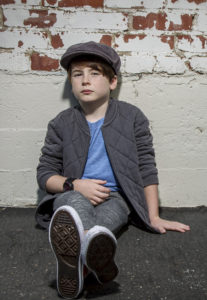
Disney Channel star Paxton Booth didn’t get into acting for the recognition, he got into it because it’s fun. As part of the ensemble of the new hit series “Coop & Cami Ask The World,” the fun is emphasized thanks in part to seeing his character Ollie Wrather grow on-screen, while also having the opportunity to do his own stunts, including taking flight in a wing suit.
We recently sat down with Booth to discuss the popularity of the series, which Tim Burton film he’d have liked to star in, and the most cherished item in his Hot Wheels collection.
TrunkSpace: Congrats on the success of your new series “Coop & Cami Ask The World.” Are you surprised by how well it has been received or did you anticipate that people would tune in and enjoy it?
Booth: Thank you! After reading the first few scripts and seeing how the characters are developing, I knew it would be a good family show. It is definitely something my family would sit down to watch together.
TrunkSpace: In the series you play Ollie Wrather, the youngest of the Wrather family. He is a character who speaks his mind. What do you enjoy most about getting to play Ollie, especially over a long period of time? (We believe you’ve shot 20 episodes already, correct?)
Booth: We just finished shooting Season 1, which was twenty-one episodes! Ollie is such a fun character to play because he has no filter. It was fun to say things I wouldn’t normally say. Playing Ollie gave me the chance to do a bunch of stunts, which is something I’ve never done before.
TrunkSpace: Is it fun getting to stay with a character for that long – seeing him grow and develop over time?
Booth: Yes, it is great to play a character that actually grows up on screen! I’ve been on projects where you don’t get to play with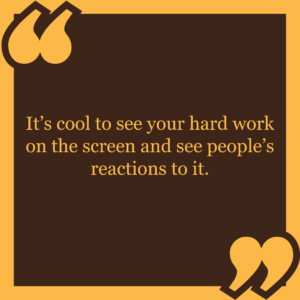 the character much, so this has been awesome to be able to put my own spin on him. You can see his character develop so much from the pilot. The first few episodes didn’t have much of a storyline for Ollie, but he slowly grows and gets more involved in each episode. I really like how Ollie and Fred start to bicker as the season goes on.
the character much, so this has been awesome to be able to put my own spin on him. You can see his character develop so much from the pilot. The first few episodes didn’t have much of a storyline for Ollie, but he slowly grows and gets more involved in each episode. I really like how Ollie and Fred start to bicker as the season goes on.
TrunkSpace: What was the most exciting thing you got to do while shooting the first season of “Coop & Cami Ask The World?”
Booth: All the stunts were a lot of fun and exciting. One of my favorite was getting to fly in the air in a wing suit. We were lucky to have such an awesome stunt coordinator, Danny Wayne, to teach me how to be safe and always made sure I had fun.
TrunkSpace: Disney Channel is known for turning young actors into big stars. Are you prepared for the attention that could come with the success of a big Disney Channel show?
Booth: I haven’t really thought about it too much. I was so young when I started acting – I did it because it was fun, not to get attention. I don’t mind when people recognize me and say hi, it’s pretty cool.
TrunkSpace: We read that you are a big Tim Burton fan. If you could have starred in any Tim Burton movie, which one would you have liked to have been involved with and why?
Booth: I would have loved to been in “Miss Peregrine’s Home for Peculiar Children.” Being the character of Barron, played by Samuel L. Jackson, would have been awesome. Playing the bad guy would be a big change and challenge. His character eats eyeballs in the movie and makes it look delicious.
TrunkSpace: You have been acting since you were 2 ½. What do you enjoy most about getting to perform and work in film/television?
Booth: I really like meeting new people. It’s cool to see your hard work on the screen and see people’s reactions to it. Plus, I get to play pretend every day!
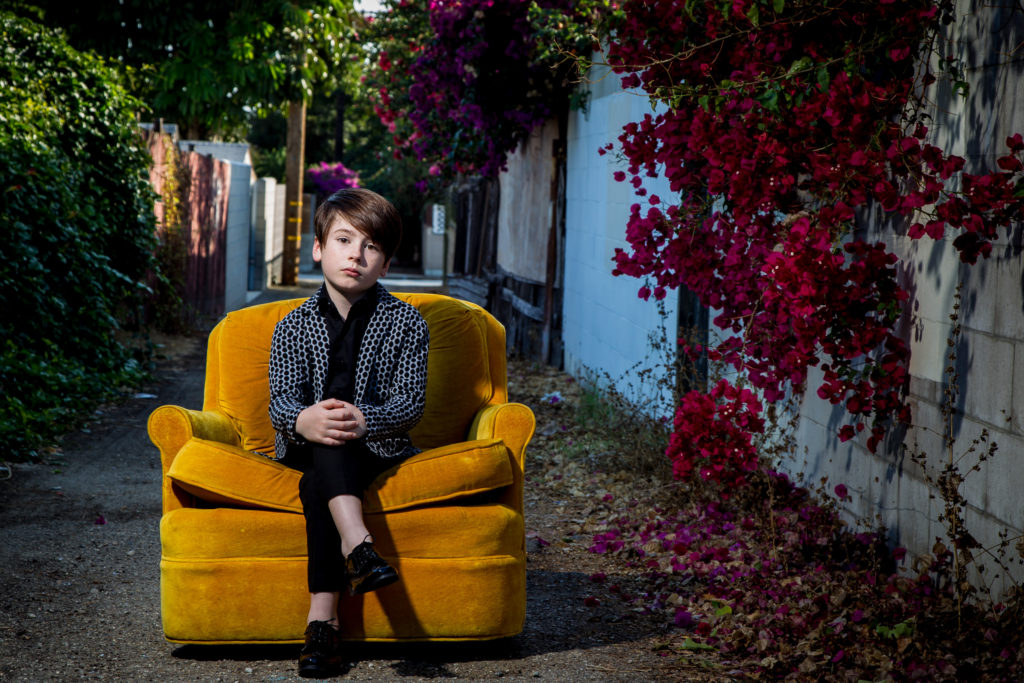
TrunkSpace: You’re a Hot Wheels collector. What’s the prize car in your collection, the one you were most excited to get your hands on?
Booth: On the last shooting day of Season 1, one of the camera operators gave me a Hot Wheels from his personal collection he’s had since he was my age. It’s a fire engine from 1969 that has a really cool fire ladder and it’s in awesome condition. I really like collecting the classics, but when they have a personal story that’s even better.
TrunkSpace: Finally, Paxton, we know you’re still so young, but have you thought about what kind of career you want to have in the future? Have you set goals for yourself in terms of your acting and other creative endeavors?
Booth: I’d love to continue acting and eventually get into doing films. I’ve really started to become more interested in learning what’s going on behind the camera, too. I’d love to shoot some high fashion editorials and start my own fashion line someday, too. But like you said, I’m still young, so my future is wide open!
“Coop & Cami Ask The World” airs on Disney Channel.


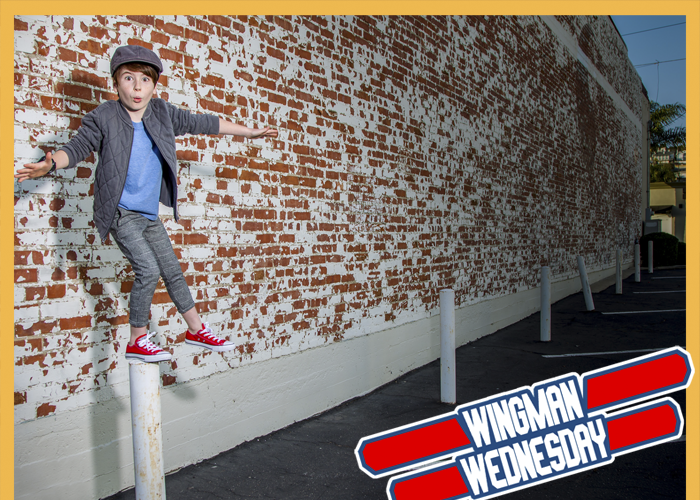
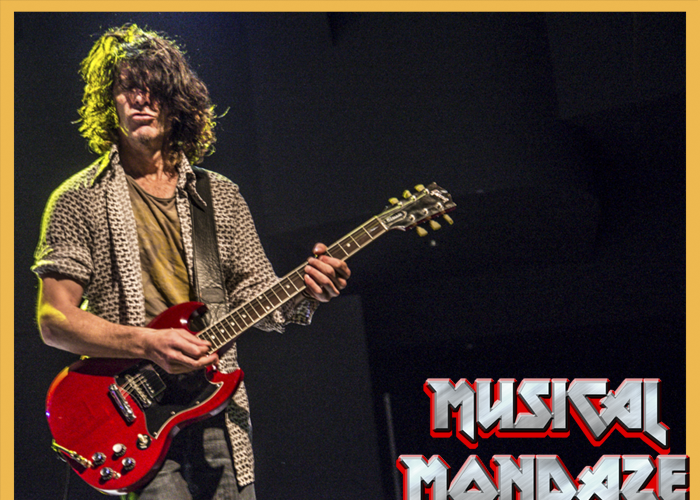

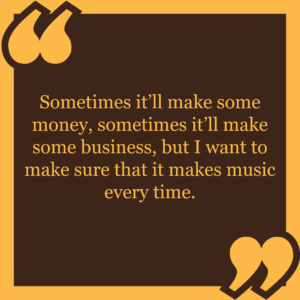 from a different angle, or always relearning or reimagining some aspect of something. Anything that’s worth your time in music, and I suppose you could extend that to business, too… I mean, I’m the type of musician that believes that… I kind of see my job as that I make music. And maybe I like to make ensembles, too. I enjoy doing that. But I make music. I think money and business – that kind of is the secondary thing to that. Sometimes it’ll make some money, sometimes it’ll make some business, but I want to make sure that it makes music every time.
from a different angle, or always relearning or reimagining some aspect of something. Anything that’s worth your time in music, and I suppose you could extend that to business, too… I mean, I’m the type of musician that believes that… I kind of see my job as that I make music. And maybe I like to make ensembles, too. I enjoy doing that. But I make music. I think money and business – that kind of is the secondary thing to that. Sometimes it’ll make some money, sometimes it’ll make some business, but I want to make sure that it makes music every time. I do a gig weekly where I play three sets a night, and the Spin Doctors used to do that same kind of gig. And if you can stretch out, your playing can get to some real, real fantastic depths, and you need diversity to be able to do that. You need to be a student of music to be able to try to get better at dynamics and all these sorts of things. So, yeah, I started realizing that I had a record. I was like, “Oh, I got to put this out. I haven’t done one of these in a long time.”
I do a gig weekly where I play three sets a night, and the Spin Doctors used to do that same kind of gig. And if you can stretch out, your playing can get to some real, real fantastic depths, and you need diversity to be able to do that. You need to be a student of music to be able to try to get better at dynamics and all these sorts of things. So, yeah, I started realizing that I had a record. I was like, “Oh, I got to put this out. I haven’t done one of these in a long time.”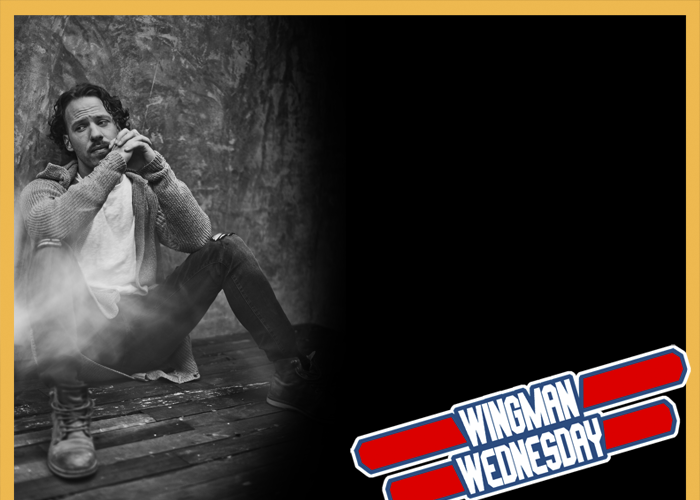
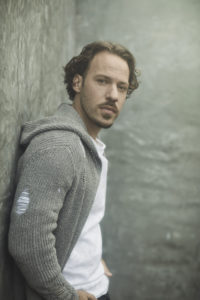
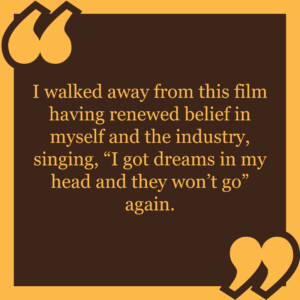 have a project like that come your way. Growing up, I have always been inspired to think, feel and act differently after coming out of a movie theater. Sometimes very significantly so, sometimes more subtly, but no matter what, most movies back then inspired me.
have a project like that come your way. Growing up, I have always been inspired to think, feel and act differently after coming out of a movie theater. Sometimes very significantly so, sometimes more subtly, but no matter what, most movies back then inspired me.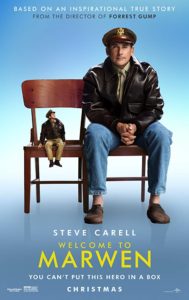 TrunkSpace: For the audience, the most memorable aspect of a film is the finished project, but we would imagine for you, it’s the process of seeing it all come together. What was the biggest highlight of being involved in the film thus far – the moment that you’ll carry with you through the rest of your life/career?
TrunkSpace: For the audience, the most memorable aspect of a film is the finished project, but we would imagine for you, it’s the process of seeing it all come together. What was the biggest highlight of being involved in the film thus far – the moment that you’ll carry with you through the rest of your life/career?
 Artist
Artist
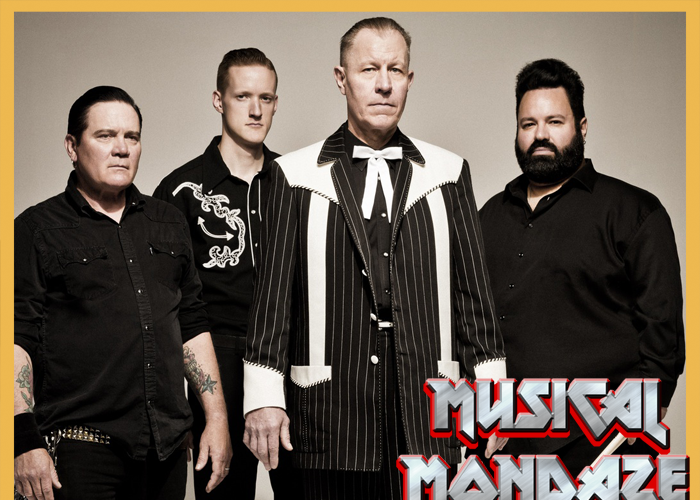
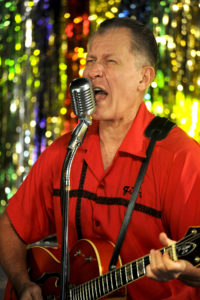
 asked back for a return gig, agents, label reps and all that made every gig pretty important. Now, none of that stuff matters much at all. I get up there, let it rip and have fun, even if it’s 20,000 people. That being said, I don’t enjoy the travel as much, but that’s what has to be done. I do still love hanging out with the guys in my band and crew. We have a lot of fun joking around and stuff.
asked back for a return gig, agents, label reps and all that made every gig pretty important. Now, none of that stuff matters much at all. I get up there, let it rip and have fun, even if it’s 20,000 people. That being said, I don’t enjoy the travel as much, but that’s what has to be done. I do still love hanging out with the guys in my band and crew. We have a lot of fun joking around and stuff.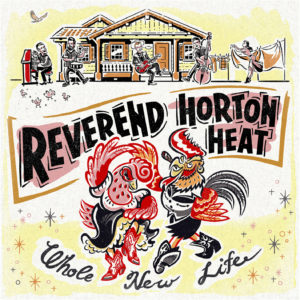 TrunkSpace: Your music is so infectious it could make Bernie from “Weekend at Bernie’s” get up and dance! When you set out to establish your sound all those years ago, was there a plan of attack or did the band’s sonic identity come together organically?
TrunkSpace: Your music is so infectious it could make Bernie from “Weekend at Bernie’s” get up and dance! When you set out to establish your sound all those years ago, was there a plan of attack or did the band’s sonic identity come together organically?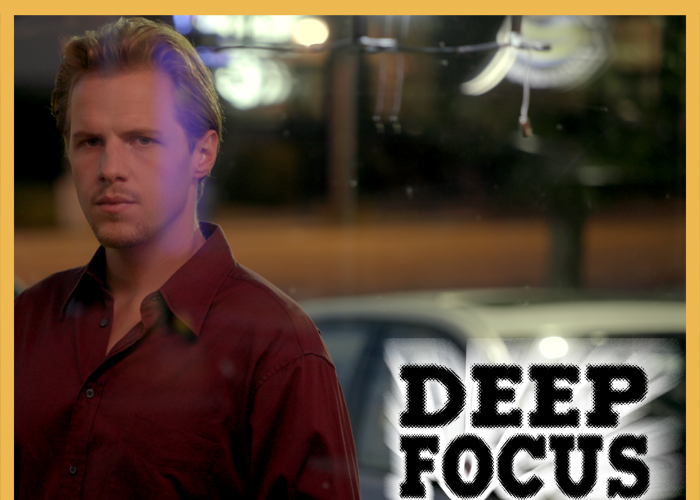
 In our ongoing column Deep Focus, TrunkSpace is going behind the camera to talk with the directors, writers and producers who infuse our world with that perennial pop culture goodness that we can’t get enough of.
In our ongoing column Deep Focus, TrunkSpace is going behind the camera to talk with the directors, writers and producers who infuse our world with that perennial pop culture goodness that we can’t get enough of.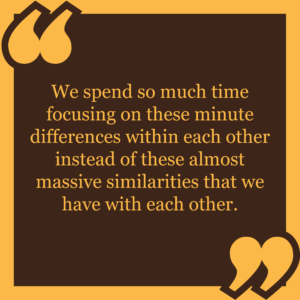 example would be, in the old draft Henry and Randy have this card hustle kind of thing they were doing. They were like small time thieves and the whole opening bit is this five minutes of them hustling people on the boardwalk to earn some cash, and then they get caught and they run from the cops. It’s like this totally different thing. And when I reread that draft, I was like, “First of all, we’re selling a character-driven story that’s going to seem more drama than comedy. We don’t necessarily need this action bit. We don’t have time to shoot this action bit. It’s not really relevant to the core of all these characters and getting people invested into them. So let’s just remove that bit totally.” Then as we started looking at certain cast members to play certain roles, we were able to highlight a lot of their own experiences with the spectrum in their own lives and the things they’ve gone through. I’ve been friends with Scout (Taylor-Compton) since I was like 12 years old. I’ve had the fortune of growing up with her and learning about her. We’ve been friends for a long time, and she’s one of the most incredible actors I know. And when she decided to sign on for Cassie it was like, “Oh, I have this wealth of personal experiences that I have with Scout and with my friendship, and throughout collaborating, and throughout the years that we can put into this character Cassie. And she can have all these different layers to it just by what she’s thinking.” And that’s really what we did is we went through and we fleshed out all the characters and made them as relatable as possible.
example would be, in the old draft Henry and Randy have this card hustle kind of thing they were doing. They were like small time thieves and the whole opening bit is this five minutes of them hustling people on the boardwalk to earn some cash, and then they get caught and they run from the cops. It’s like this totally different thing. And when I reread that draft, I was like, “First of all, we’re selling a character-driven story that’s going to seem more drama than comedy. We don’t necessarily need this action bit. We don’t have time to shoot this action bit. It’s not really relevant to the core of all these characters and getting people invested into them. So let’s just remove that bit totally.” Then as we started looking at certain cast members to play certain roles, we were able to highlight a lot of their own experiences with the spectrum in their own lives and the things they’ve gone through. I’ve been friends with Scout (Taylor-Compton) since I was like 12 years old. I’ve had the fortune of growing up with her and learning about her. We’ve been friends for a long time, and she’s one of the most incredible actors I know. And when she decided to sign on for Cassie it was like, “Oh, I have this wealth of personal experiences that I have with Scout and with my friendship, and throughout collaborating, and throughout the years that we can put into this character Cassie. And she can have all these different layers to it just by what she’s thinking.” And that’s really what we did is we went through and we fleshed out all the characters and made them as relatable as possible. 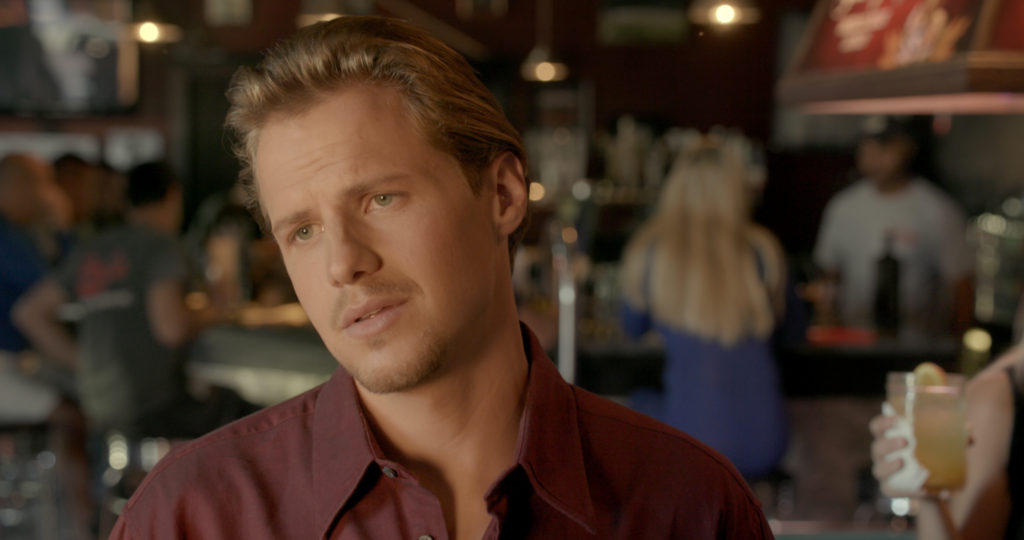
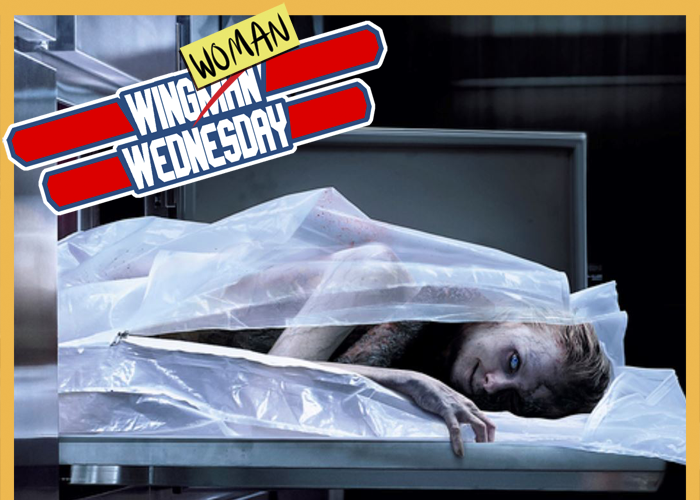

 all. I just approached it the way I would approach any sort of character – just the same as I would approach a young teenage romance. You just take the character in, and you just let it come to life, and then once the cameras stop rolling, you just have to let it go.
all. I just approached it the way I would approach any sort of character – just the same as I would approach a young teenage romance. You just take the character in, and you just let it come to life, and then once the cameras stop rolling, you just have to let it go.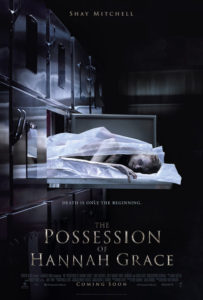 TrunkSpace: Sure.
TrunkSpace: Sure.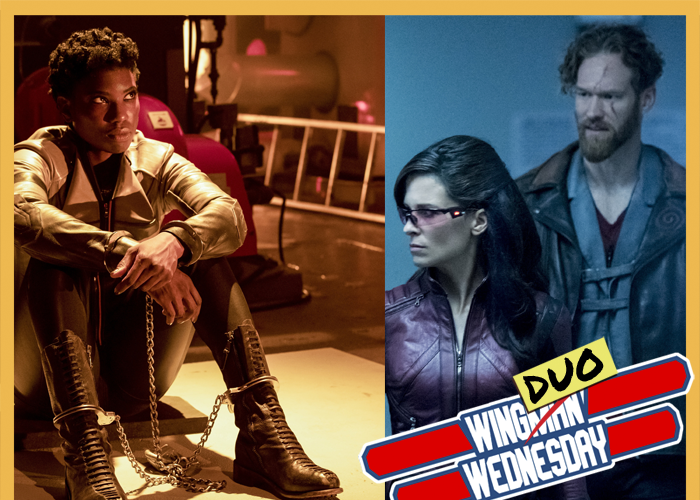
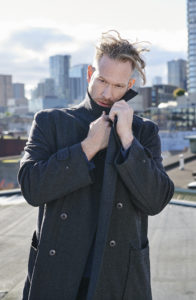
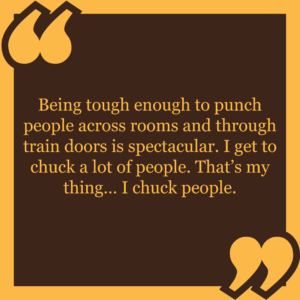 episode in the train car was so much fun! Taking out a whole crew of A.R.G.U.S. was very satisfying from a supervillain perspective. BUUUT, it was that day I realized I need to start training those front kicks a little higher.
episode in the train car was so much fun! Taking out a whole crew of A.R.G.U.S. was very satisfying from a supervillain perspective. BUUUT, it was that day I realized I need to start training those front kicks a little higher.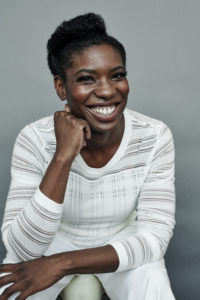
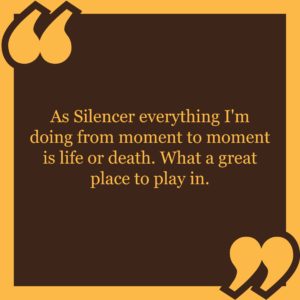 the opportunity to take a great a role on a compelling show, I’m doubly pleased. I’m taking part in the creation of something I’d want to watch and then I get to share it.
the opportunity to take a great a role on a compelling show, I’m doubly pleased. I’m taking part in the creation of something I’d want to watch and then I get to share it.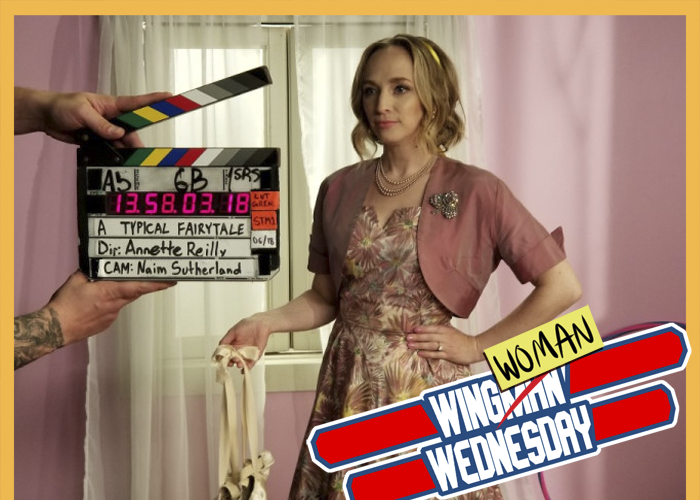
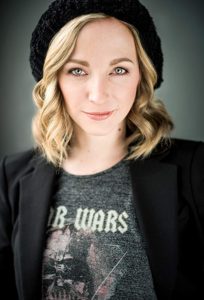
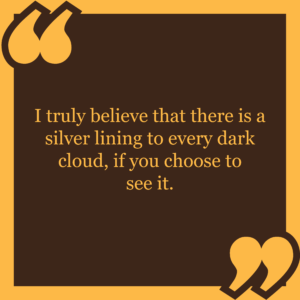 know what I was getting into when I was cast. There was a fair bit of secrecy surrounding it at that point. The reception has been beyond anything I was expecting.
know what I was getting into when I was cast. There was a fair bit of secrecy surrounding it at that point. The reception has been beyond anything I was expecting.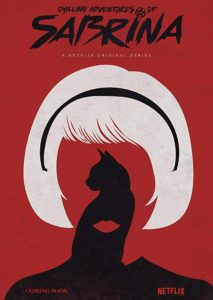 TrunkSpace:
TrunkSpace: 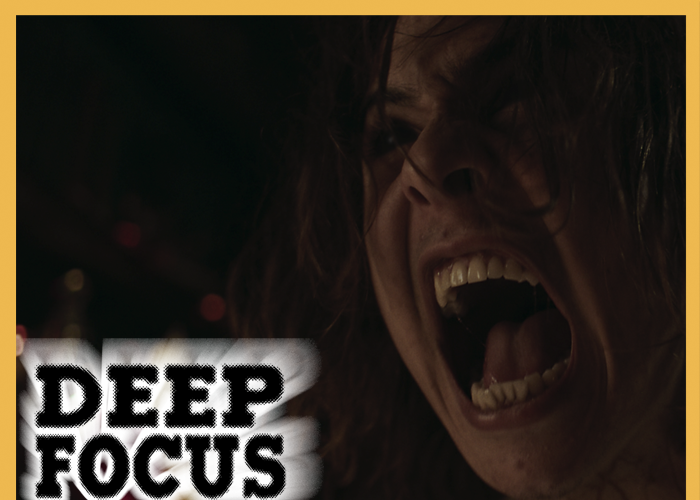
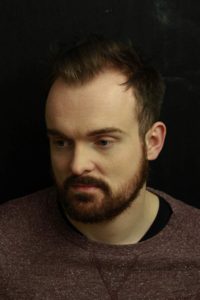
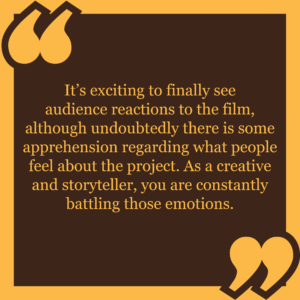 being said, the final clairvoyant scene was perhaps my greatest compromise. We had about twice the material written down, from what we shot, and had to creatively find a way to maintain the intensity without the added substance. Despite the compromise, it’s definitely the scene I am most proud of.
being said, the final clairvoyant scene was perhaps my greatest compromise. We had about twice the material written down, from what we shot, and had to creatively find a way to maintain the intensity without the added substance. Despite the compromise, it’s definitely the scene I am most proud of.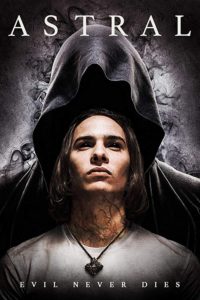 TrunkSpace
TrunkSpace